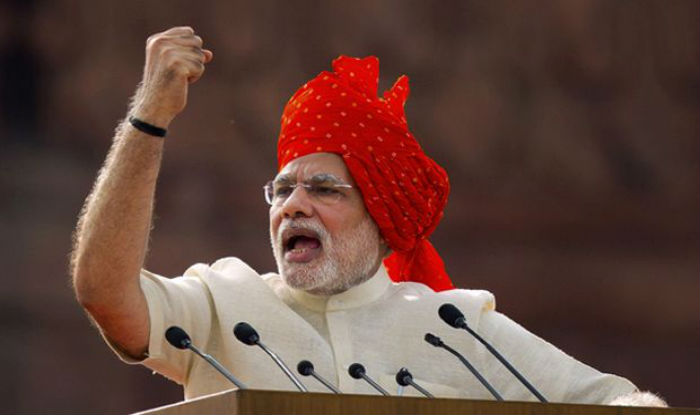Prime Minister Narendra Modi’s economic policy is based on a single goal- make India a market-friendly, rich and prosperous nation.
In fact, there was a time when India was known for its bureaucratic red tape. The pre-liberalisation economic policy of State domination and License Raj normalised anti-market behaviour. Even after the 1991 reforms, the pre-liberalisation-era policies were not dumped and the country continued to follow the remains of rep tapism. However, with the Modi government simplifying rules and relaxing regulations, India is fast turning into a corporate loving nation.
Compliance burden cut down drastically
As per a TOI report, Department for Promotion of Industry and Internal Trade (DPIIT) Secretary Anurag Jain said that the centre and states have reduced around 22,000 compliances, whereas rules have been simplified in 13,000 cases. The government has also decriminalized 103 offences apart from removing 327 redundant provisions and laws.
All these efforts are being taken by the government as a part of its drive to help the business community reduce its compliance burden and facilitate good governance in India’s business sector apart from enhancing the ease of doing business.
At an event organized by the DPIIT for reducing compliance burden, Union Commerce and industry minister Piyush Goyal informed that a big drive is being carried out by several Union Ministries and state governments to simplify procedures, decriminalize various offences and remove redundant laws.
Red tape to Red carpet
The government’s efforts to improve the business sentiment and investor climate in the country really signifies a cultural change in the Government of India.
By removing red tape and laying down a red carpet for business leaders and entrepreneurs the government has bolstered the faith of the business community in national governance. Goyal said, “The mindset has evolved from ‘not able to understand complexities’ to ‘it’s so simple to start a business’.”
One-stop show for businesses
Goyal said that numerous regulatory compliances in the past had only created confusion among investors. In an uncertain environment, investors are usually reluctant to get involved.
So, the government’s solution is to launch a national single-window system, which is slated to become a “one-stop shop” for investors to apply for approvals. As per Goyal, it is an “outstanding example” of the government’s commitment to simplify and rationalize the business conditions for investors.
Reducing compliance burden to improve ease of doing business
Goyal said, “Reduction of compliances which include simplification of compliances, elimination of several compliances, decriminalisation of several laws…Collectively when you look at it, it can have a transformative impact and there is a multiplier effect on the ease of doing business.”
Moreover, DIIT Secretary also claimed that reforms related to compliance burden have been put in four categories- four different buckets – simplification, rationalisation, digitisation and decriminalisation.
He added “By June 2021, almost 23,000 processes have been put in these four buckets. So 23,000 reforms have happened out of those 70,000 odd which were listed out (by a third party).”
License Raj ended in 1991; Inspector Raj ending in 2021
India is making a big push towards making business operations and industrial activity easier and simpler. This is a step towards turning India into a market-friendly economy leaving behind an era of unnecessary and excessive State control.
For many armchair experts, the process of economic reforms had ended in 1991. However, the 1991 reforms were in the nature of policy changes triggered by a Balance of Payment crisis. The crisis led to the political establishment abolishing the License Raj.
However, the idea of an omnipresent state that hurdles enterprise and market forces had got deeply rooted in the Indian legal system.
Throughout the 1950s and 1960s, mushrooming of public sector enterprises were promoted, while the private sector struggled to flourish. Such public sector domination was institutionalised well into the late 1970s with policies like nationalization of banks, high-income tax rates and Constitutional amendments abolishing the Right to Property as a Fundamental Right or enabling state monopoly in businesses.
Make no mistake, in 1991, we abolished the License Raj but not the Inspector Raj. We have a huge bureaucracy that has inherited a plethora of legislation, rules and regulations that can be effectively used to put obstacles in the establishment or expansion of businesses.
Such rules and regulations can still be used to curtail the freedom of business houses. At the end of the day, such wide discretion lies at the very root of bureaucratic red tape. Therefore, the Modi government is taking steps to make India a vibrant market-economy free from all kinds of bureaucratic hurdles and red tape.
